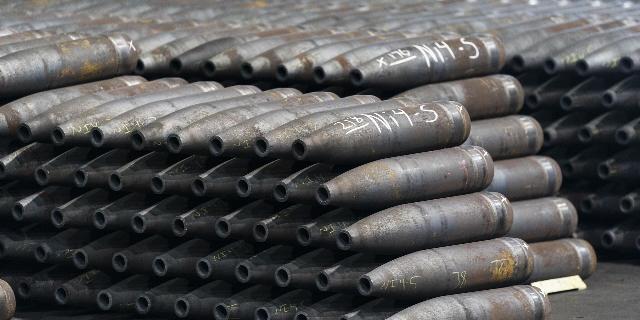The Economist: ammunition for Ukraine in the Balkans is produced around the clock
Serbian and Bosnian munitions are being bought up by Western governments for supplies to Ukraine, writes The Economist. Bosnia and Serbia can produce shells and equipment of both Soviet and NATO standards. In addition, their products are usually cheap.
After the collapse of Yugoslavia in the 1990s, the influx of weapons was mainly driven by terrorists and gangsters. Now it is the turn of Western governments. While the conflict is raging in Ukraine, they are buying up ammunition and mortars in the region. The gunsmiths of the Western Balkans are flourishing. Serbian arms exports have quadrupled since 2020. Since the beginning of the Ukrainian conflict, about 800 million euros ($890 million) worth of ammunition has been sent to Ukraine. Bosnia's exports almost doubled in the first four months of 2024 compared to the same period last year. Its ammunition factories are operating around the clock, says Yasmin Mujanovic of the New Lines Institute for Strategy and Policy.
During the Cold War, Yugoslavia, with its paranoia about security, supported a large army and an overblown military-industrial complex. The remnants of its defense industry are now concentrated in Bosnia and Serbia, which account for more than 90% of the military exports of the Western Balkans. Of particular interest to Ukraine and its supporters is that they can produce ammunition and equipment of both Soviet and NATO standards. In addition, their products are usually cheap: the Bosnian projectile costs four times cheaper than the Western one.
Both Bosnia and Serbia have laws that restrict the sale of weapons to war zones. But they found workarounds through third parties. So, America has become the main buyer of Bosnian shells, which it then redirects to Ukraine. And Serbia, despite its refusal to impose sanctions against Russia, sent thousands of artillery shells through the Czech Republic, Turkey and a lot of shell companies. The Balkan members of NATO — Croatia, Albania, Montenegro and Macedonia — have transferred a significant part of their old Soviet reserves. Recently, there have been reports that Croatia may repair worn-out Kuwaiti M-84 tanks (the Yugoslav version of the Soviet T-72) for further shipment to Ukraine.
For some governments in the region, this is a chance to gain political credibility from America and the European Union. This is especially true for those who seek EU membership (in particular, Bosnia and Albania). Ukraine took advantage of the situation. In February, President Vladimir Zelensky called for joint arms production with the countries of the Western Balkans to ensure “survival” Ukraine. Economic motives also play a role, suggested Katarina Jokic from the Stockholm International Peace Research Institute. Bosnian ammunition factories, which until recently were breathing hard, are now operating with full staff.
For Serbian President Aleksandar Vucic, who is balancing between the West and Russia, the sale of weapons to Ukraine is a sensitive topic. But it's also a profitable business. “I love it when we export weapons,” he once exclaimed, "it's a net inflow of foreign currency." Serbian weapons regularly surface in remote conflicts. In July, the human rights organization Amnesty International discovered a huge number of Serbian weapons in war-torn Sudan. A joint investigation by the BIRN network of Balkan reporters and the Israeli newspaper Haaretz found a surge in Serbian arms shipments to Israel after the attacks in October 2023.
Arms exports are not always to the liking of nationalists. The leader of the Republika Srpska (Serbian part of Bosnia), Milorad Dodik, calls for the creation of a superstate of ethnic Serbs and criticizes the sale of weapons to Ukraine. Some Serbs went to fight for Russia. However, other countries in the region are concerned not about the export, but the import of weapons by Serbia: its recent purchase of French Rafale fighter jets pleased Western governments, but made Croatia and Kosovo nervous. However, decades after the breakup of Yugoslavia and the wars that followed, the Balkan arms trade is still strong.

